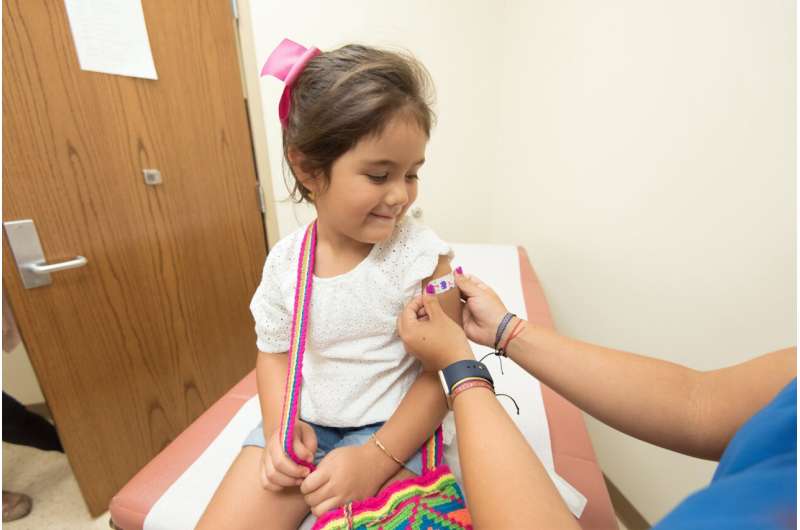
A cell-based influenza vaccine has effectively provided protection against the flu in children and adolescents, according to a new study.
The research found the cell-based quadrivalent influenza vaccine (QIVc) produced a sufficient immune response in children aged two to 18 years. The lead investigator on the study was Professor Terry Nolan, head of the Vaccine and Immunisation Research Group (VIRGo) at the Murdoch Children’s Research Institute (MCRI), and the Peter Doherty Institute for Infection and Immunity at the University of Melbourne.
The findings, published in the New England Journal of Medicine, were the first on the absolute efficacy of a cell-based influenza vaccine in children as young as two years of age.
The randomized controlled study involved 4514 participants across Australia, Thailand, Estonia, Finland, Lithuania, Poland, Spain and the Philippines. The overall vaccine efficacy was 54.6 per cent, meeting the pre-specified endpoint for success and showing benefit across three influenza seasons and all eight countries.
QIVc uses a cell-based flu vaccine production process, an alternative to traditional egg-based manufacturing where reference influenza viruses are grown in the yolk of fertilized hens eggs. But this can result in mutation of the influenza virus leading to an antigenic mismatch between the circulating reference and inactivated strains contained within the seasonal flu vaccine.
Professor Nolan said because cell-based flu vaccines, grown in animal cells, were designed to produce an exact match to the World Health Organization’s selected influenza strains by avoiding egg-adapted changes, they could potentially provide greater effectiveness.
Professor Nolan said cell-based vaccine technology may also offer additional advantages including increased scalability and production speed in the event of an influenza pandemic.
Source: Read Full Article